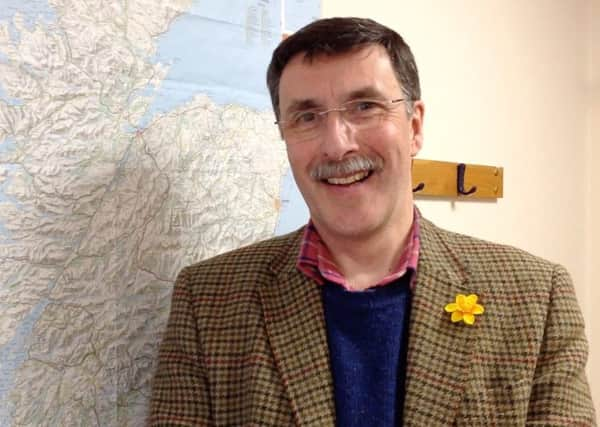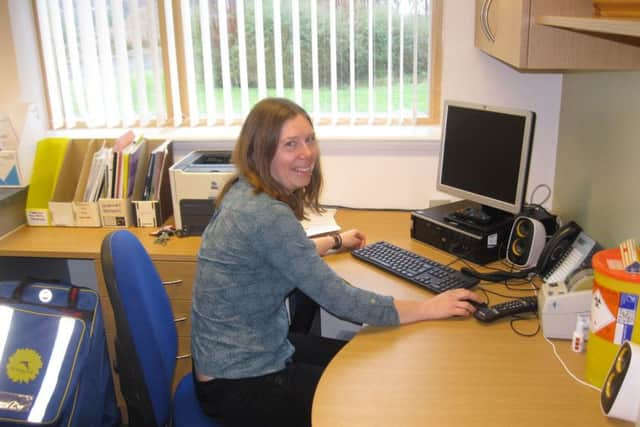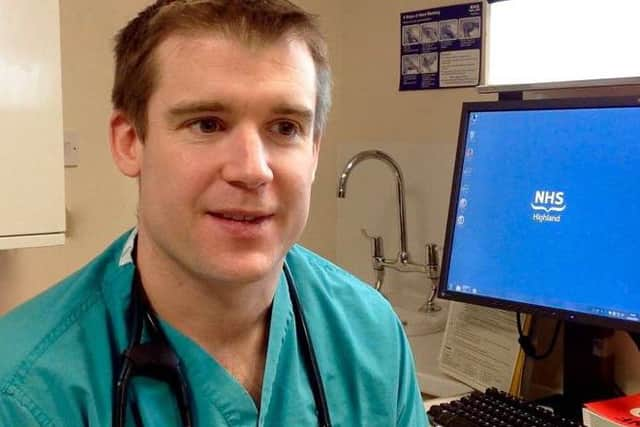Scheme to retain medics in remote locations is a success, study claims


But NHS Highland, on the the worst affect authorities,claims the results of a study into a national initiative which gives newly-qualified doctors a taste of life and work in remote areas has vindicated its use of the scheme.
It state that three quarters of participants are being retained in rural Scotland.
Advertisement
Hide AdAdvertisement
Hide AdThe health board has been a big supporter of the GP Rural Fellowship scheme organised by the training and education body NHS Education for Scotland (NES).


Each year, up to a dozen new GPs sign up to work with health boards for 12 months, with the boards hoping that the experience will tempt them to pursue a career in remote and rural practices when their fellowship finishes.
There are currently six GPs on the fellowship scheme, five of whom are in the NHSHighland area.
The board is currently looking to recruit the next cohort of rural fellows, knowing that the report on a major study into the scheme has shown that it is having the desired effect, with around three-quarters of fellows being retained in important roles in rural Scotland.
The study was conducted by Professor Ronald MacVicar, who has overall responsibility for the rural fellowship programme.


He was supported by Forres GP Dr Gillian Clarke, rural fellowship co-ordinator for NES and and Dr David Hogg, a partner of the Arran Medical Group and a graduate of the rural fellowship programme.
They questioned 66 of the 69 GPs who were recruited to the fellowship between 2002, when the scheme was set up, and 2012, and found that of the 63 who were currently working in general practice, 46 were doing so in rural areas or small towns in Scotland.
The report’s authors wrote: “The results underline previously unpublished data that suggests that approximately three-quarters of graduates are retained in important roles in rural Scotland.”
Advertisement
Hide AdAdvertisement
Hide AdDr Ken Proctor, NHS Highland’s associate medical director, said the study’s findings underlined the importance of the rural fellowship scheme to the health board.


He said: “Our difficulties recruiting and retaining clinicians, including GPs, are well documented and anything that helps to accentuate the positive about practising in some of our more remote areas has to be welcomed.
“This report shows that the rural fellowship scheme has been a big success.”
The report features a case study which highlights Arran Medical Group’s experience of rural fellows, where five of the nine GPs are graduates of the programme.
It states: “Fellows are able to experience true continuity of care across a variety of rural settings, and take time out to develop new skills, from emergency care to acupuncture. Some have also implemented new services: eg, vulnerable families and intergrated emergency care.


“The practice benefits greatly too. Participation in the programme ensures access to motivated and ‘fresh’ GPs who bring energy and innovation to the practice.
“Our patients see it as a positive initiative as they are aware of the problems in recruiting new doctors to rural practice. In turn, this improves retention of existing GPs and other practice staff, who benefit from new perspectives and the enthusiasm that each fellow brings.”
The rural fellowships are run as a co-operative venture between NES and rural health boards, and are co-funded by NES and the employing board. The fellows are allocated a base practice, and are expected to work around a half of their year there.
Advertisement
Hide AdAdvertisement
Hide AdAs well as gaining experience of working in remote and rural practices, the rural fellows are given 13 weeks of protected time and a financial allowance to support a learning programme based on the person’s needs.
Educational time is spent attending courses, clinical attachments in both hospital and primary care, and studying. Fellows are expected to complete a project during the year on a subject of their choice.
Among the current batch of rural fellows is Dr Zoe Anderson, who is based at Tweeddale Medical Practice but who also works at Ballachulish Medical Practice 15 miles away.
Originally from North Wales, Dr Anderson, 32, studied Medicine in Cardiff and moved to Scotland to do her foundation training, first in Inverness and Fort William but later in Oban, Lochgilphead, Aviemore, Orkney and Elgin.
A period studying Tropical Medicine also saw her work in Sierra Leone for six months.
Her experience in remote and rural working clearly nudged her towards applying to be a rural fellowship rather than her taking up the other most likely option: practising as a locum GP.
She said: “The rural fellowship has been excellent for me and I would definitely encourage others to consider it. It’s certainly helped me in deciding that I want to work in rural areas in the future.”
Dr Anderson’s fellowship finishes in July but before then she will spend a month in a teaching hospital in Blantyre, Malawi – exactly the kind of project work she believes makes the rural fellowship particularly attractive.
Advertisement
Hide AdAdvertisement
Hide Ad“It is giving me the opportunity to do a range of things which, I am sure, will stand me in good stead in the future,” she said.
Another person to be benefiting from the scheme is Dr Bob Scully, who has been serving as an ‘acute fellow’ under part of the scheme designed to give new GPs experience of acute medicine in remote and rural areas.
Originally from Kildare in the Irish Republic, Dr Scully (37) is primarily based in the MacKinnon Memorial Hospital in Broadford, Skye, and the extensive experience he is gaining there is helping him to develop a good skills mix.
“I’m attracted to the idea of true generalism in medicine, and my work in Skye is certainly that,” he said.
“This is a pretty unique job – I can’t imagine anywhere else where I would do what I’m doing now. I’m doing a little bit of everything, which can be a little scary at times but can also be challenging, which is great.
“There is nothing like this in Ireland, and it’s certainly something I would recommend.”
Like Dr Anderson, Dr Scully was particularly drawn to the Highlands by the Great Outdoors, and while the weather this winter curbed his hillwalking somewhat, he has joined the Skye mountain rescue team and plans to work with it as part of the project element of his fellowship.
He explained: “My project will be to retrospectively evaluate the team’s cases to see if there is something systemic that can be changed in the delivery of pre-hospital care for people injured on the hills.”
Advertisement
Hide AdAdvertisement
Hide AdDr Ken Proctor concluded: “I have been heartened to learn of the experience of Dr Anderson, Dr Scully and other rural fellows who clearly see their future in practising in some of our more remote communities.
“There is no doubt that there are challenges in such work but there also some great opportunities.
“The workload is tremendously varied, it’s possible to spend more time with patients and perhaps treat them more holistically than would be the case in an urban practice, and GPs can work with the communities they serve, and their colleagues, to shape services that best meet rural needs.”
